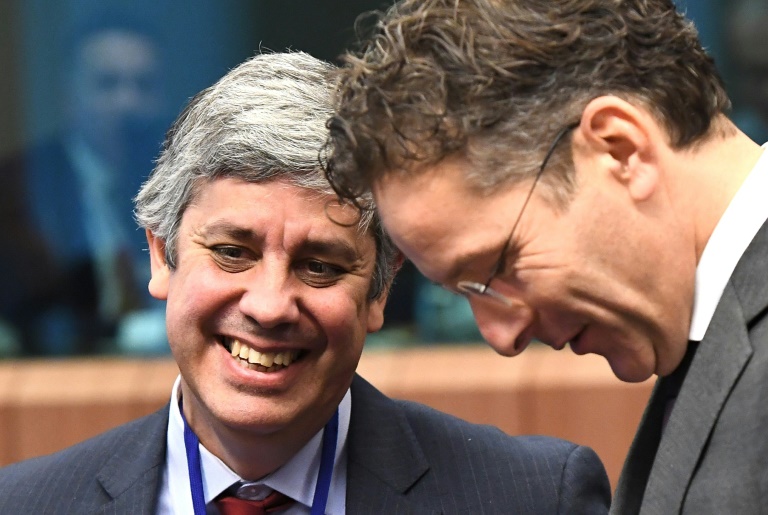Mayor claims she was exonerated of VBS graft allegations
Mario Centeno, who was Monday picked as Eurogroup chief, has pulled off a rare balancing act between growth and budgetary discipline as Portuguese finance minister, earning him a comparison with football star Ronaldo.
The 50-year-old economics professor who is often called a liberal but sees himself “culturally of the left” accedes to the top post among eurozone finance ministers after only two years in politics.
Former German finance minister Wolfgang Schaeuble, not excessively prone to handing out flattery and a staunch defender of budgetary rigour, last May called him “the Cristiano Ronaldo of the Ecofin”, the meeting place of EU’s finance and economy ministers.
The remark, lapped up by Portuguese media, helped make Centeno the face of economic recovery in Portugal, that was once one of the eurozone’s weakest economies depending on international aid to survive the area’s debt crisis.
– Rugby and cooking –
But now, two years after the arrival in power of Portugal’s Socialist government backed by the radical left, the statistics look much brighter.
Portugal’s public deficit is the lowest it has ever been in 43 years of democracy, growth is humming along at levels not seen since the start of the century, and the unemployment rate is back to pre-crisis levels.
“Portugal’s recent experience shows that it is possible in Europe to reconcile the objectives of budgetary recovery and growth,” Centeno said last week as he announced his candidacy to succeed Dutchman Jeroen Dijsselbloem at the Eurogroup.
His target, he said, was to “contribute to obtaining the necessary consensuses needed to complete the economic and monetary union” and make the euro into an instrument “to promote economic and social convergence”.

Who said you can’t have both growth and budgetary discipline?
Centeno, who loves rugby and cooking, is the son of a bank employee and a postal civil servant who grew up in the southern Algarve region and moved to Lisbon at the age of 15 to take up his studies.
He is a graduate of the prestigious Harvard University which left a lasting impression on Centeno partly because the American experience got him interested in micro-economic questions.
– Quiet man –
“I became much more receptive to the link between the economy and people,” he says. “Sometimes macro-economics forgets that there are people on the receiving end.”
On his return to Lisbon with his wife and three children he joined the Bank of Portugal as an economist and went on to become deputy director at the central bank’s economic research department.
“He was a quiet young man, affable, intelligent, and well-versed technically,” said Luis Campos et Cunha, the bank’s former vice president.
Nothing pointed to a political career for Centeno until Prime Minister Antonio Costa asked him to pen the Socialist party’s economic platform and to stand in the general election of 2015. Centeno complied, but ran as an independent candidate.
Completely unknown to the public at the time he entered government, Centeno had a reputation for economic liberalism in academic circles because of his positions in favour of greater labour market flexibility.
But he himself tries to sidestep traditional ideological schisms, promoting instead what he calls a “fusion” approach to economics.
– Family and Benfica –
“The only things that define me are my family and Benfica”, Portugal’s most popular football club, he says.
Always the pragmatist, Centeno quickly dropped the idea to introduce a single labour contract — a measure many economists support to bridge the gap between temporary and permanent contracts — because of opposition from the anti-liberal left on which the current government depends for its survival.
Despite his relative lack of political experience, Centeno has proved to be a quick learner in the ways of government, making him a heavyweight in Portugal’s cabinet.
Download our app